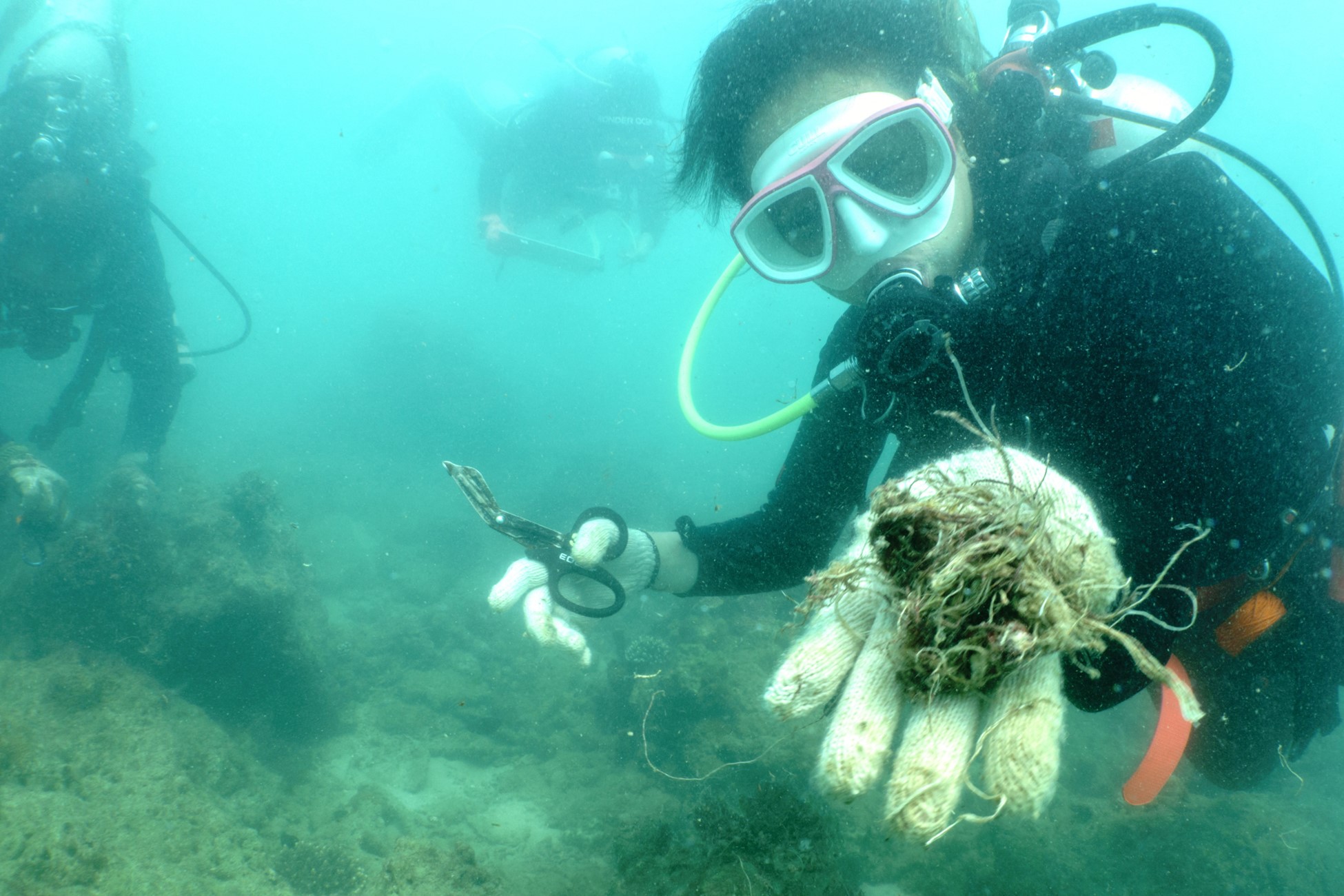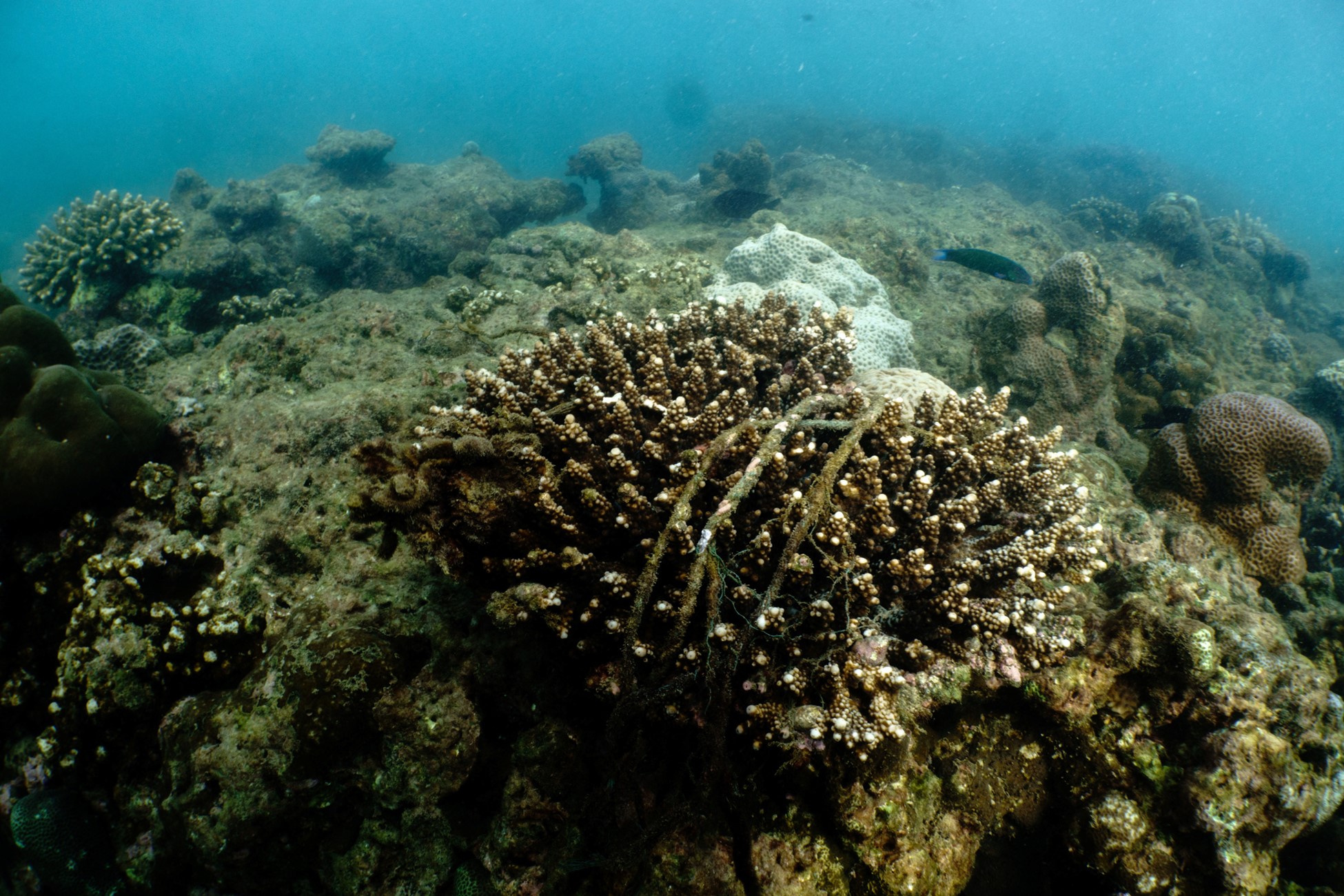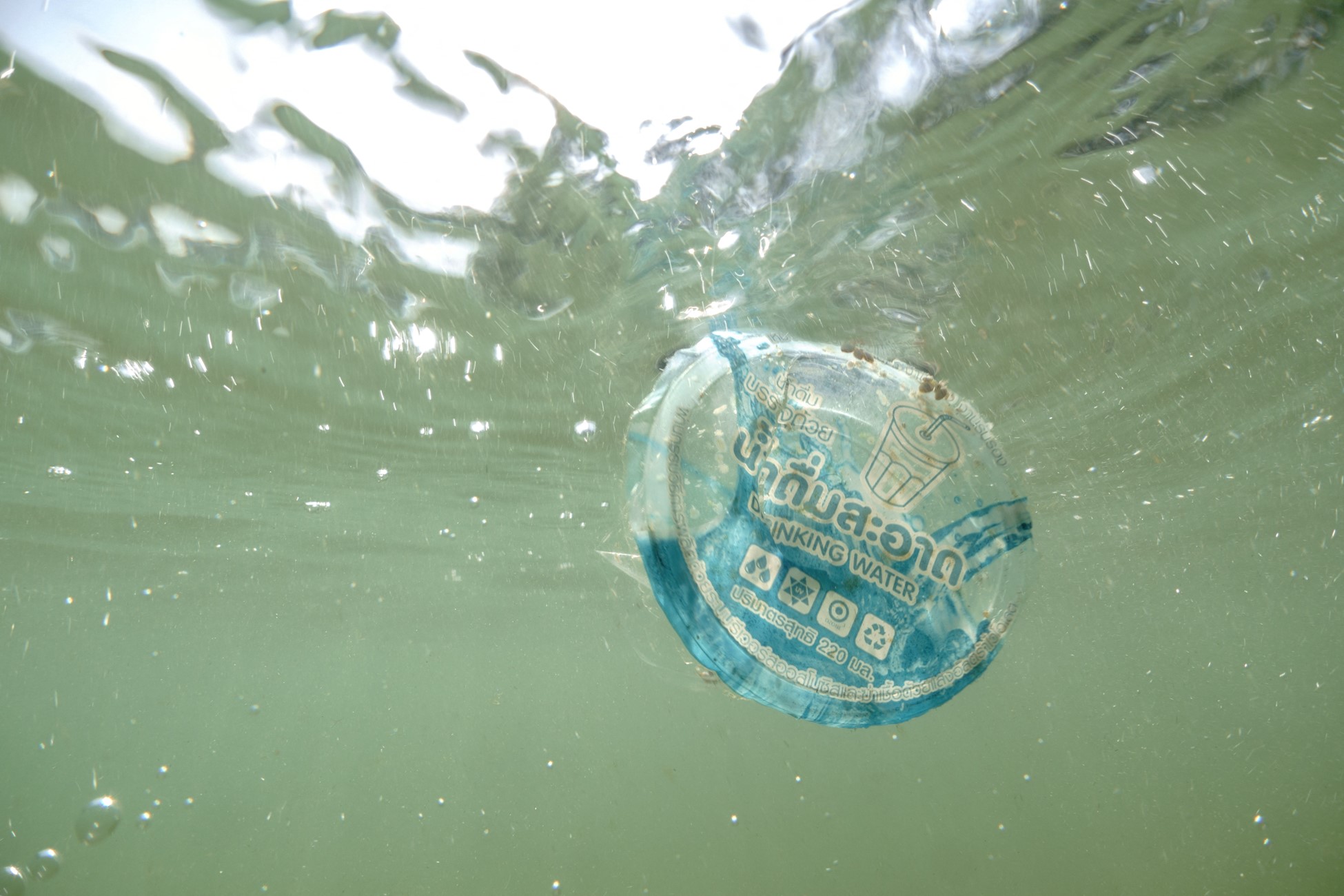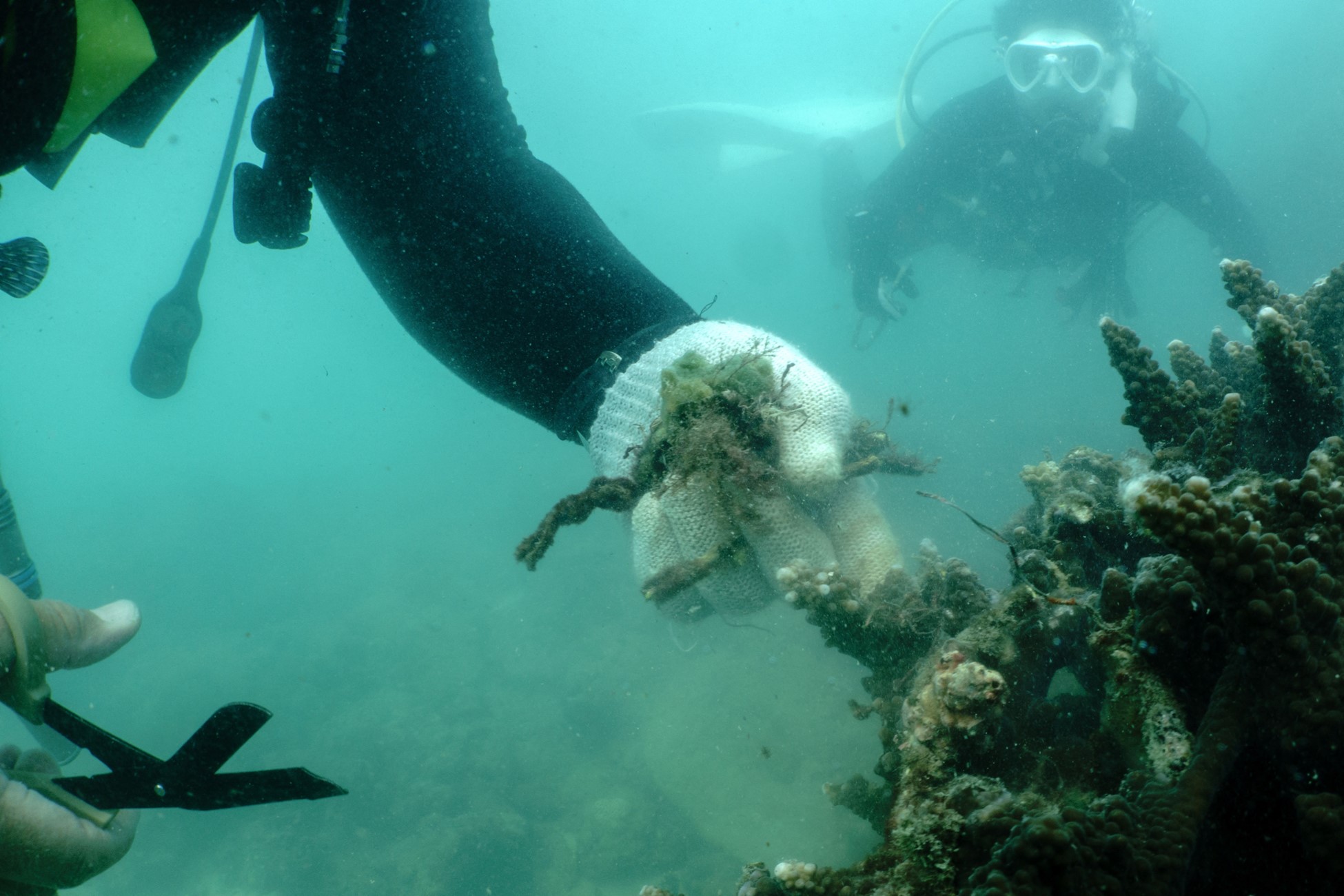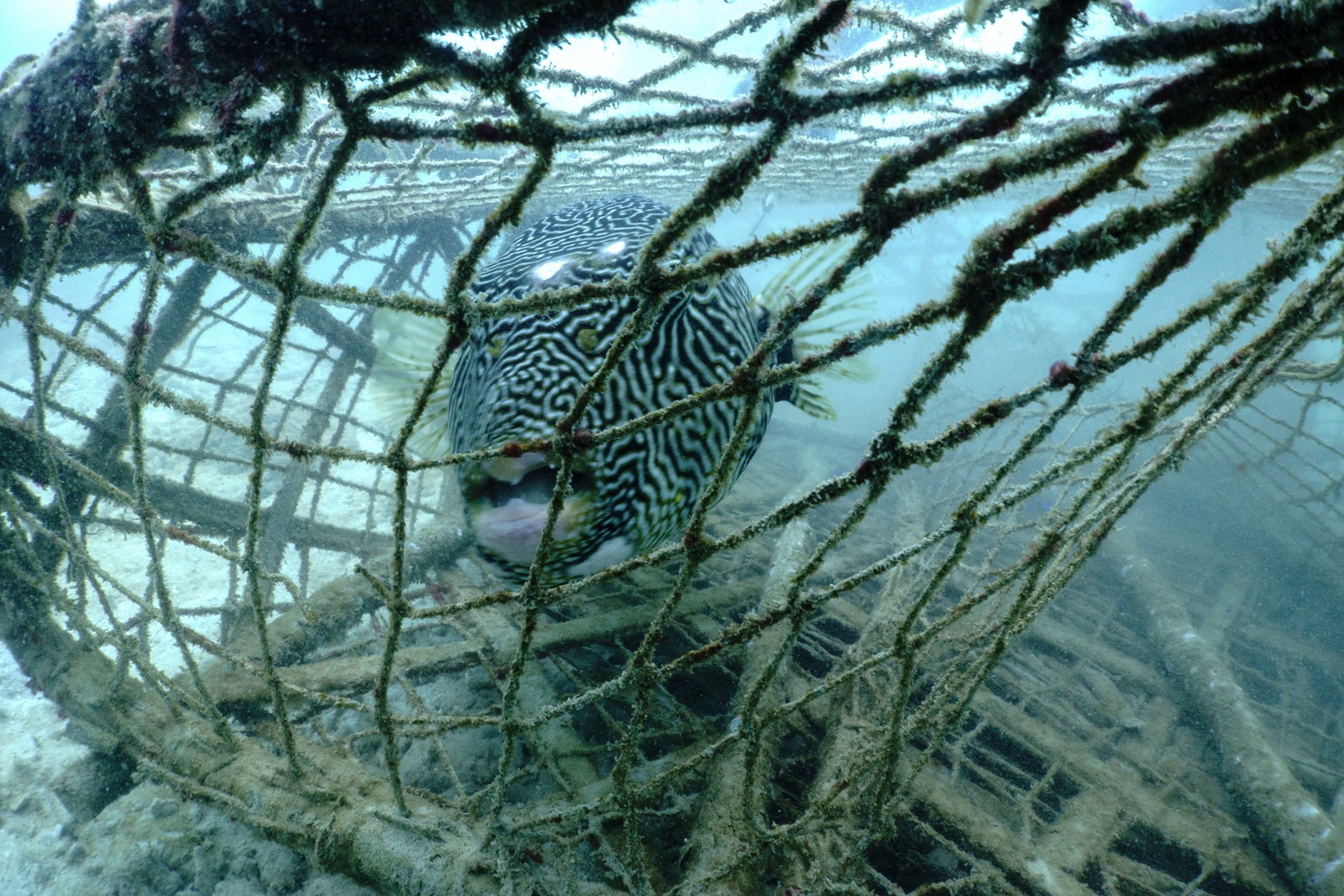Beneath the surface of the turquoise waters off a beach on Thailand's holiday island of Phuket, divers laboriously collect abandoned fishing gear, much of it made from plastic, that is tangled on coral and trapping sea life.
This discarded or lost fishing equipment is known locally as "ghost gear" and is a growing problem in waters off Thailand and beyond, ensnaring marine life and adding to microplastics pollution as nets and ropes break down over time.
According to Thailand's Department of Marine and Coastal Resources, estimates of the percentage of endangered marine life affected by plastic pollution in the upper Andaman Sea off Thailand have grown from 20% in 2021 to at least 30% as of 2023.
|
|
| Discarded fishing gear lies on a coral reef in Phuket, Thailand, April 4, 2024. Photo: Reuters |
Scuba diving groups and marine organisations in Thailand have been working to remove the abandoned fishing gear from reefs through cleanup missions, but have a problem tracking its scale.
Experts say the lack of a coordinated strategy is hindering the pursuit of more comprehensive and effective solutions to track, manage or outlaw dumping of fishing equipment.
"We constantly collect discarded fishing gear. We have a strong scuba diving community. We have many government sectors working on this cleanup drive," said Salisa Traipipitsiriwat, senior campaigner and Southeast Asian plastic manager from the Environmental Justice Foundation (EJF), which is partnering with other organisations to compile data.
The aim is to help marine scientists assess the impact of abandoned fishing gear in Thai waters.
"Even though there is collection of waste, there is no uniform data collection," Salisa added.
|
|
| Plastic garbage floats in the sea in Phuket, Thailand, April 4, 2024. Photo: Reuters |
Off the Phuket shore, about 20 volunteer divers equipped with submersible gear, scissors, nets, and notebooks dive down to collect discarded fishing nets, recording data during cleanup missions. They are also encouraging other recreational divers to join their initiative.
The group also engages about 500 fishermen to collect abandoned nets.
|
|
| A scuba diver removes abandoned fishing nets covering a coral reef in Phuket, Thailand, April 4, 2024. Photo: Reuters |
The trash is sorted and weighed and, where possible, sent for recycling. About 130 tons of used fishing equipment has been collected by EJF from local fishing communities along Thai coastal areas and recycled into new products.
In one case, a dead turtle is found on the shore and taken for a necropsy performed by marine veterinarians. Inside its stomach are pieces of rope and plastic.
"As of today, plastic waste is one of the main causes of endangered marine animals washing ashore," said Patcharaporn Kaewmong, head of the marine rescue centre in Phuket.
"Waste management is a very big problem."
|
|
| A star puffer fish is trapped inside an abandoned fishing cage in Phuket, Thailand, April 4, 2024. Photo: Reuters |



